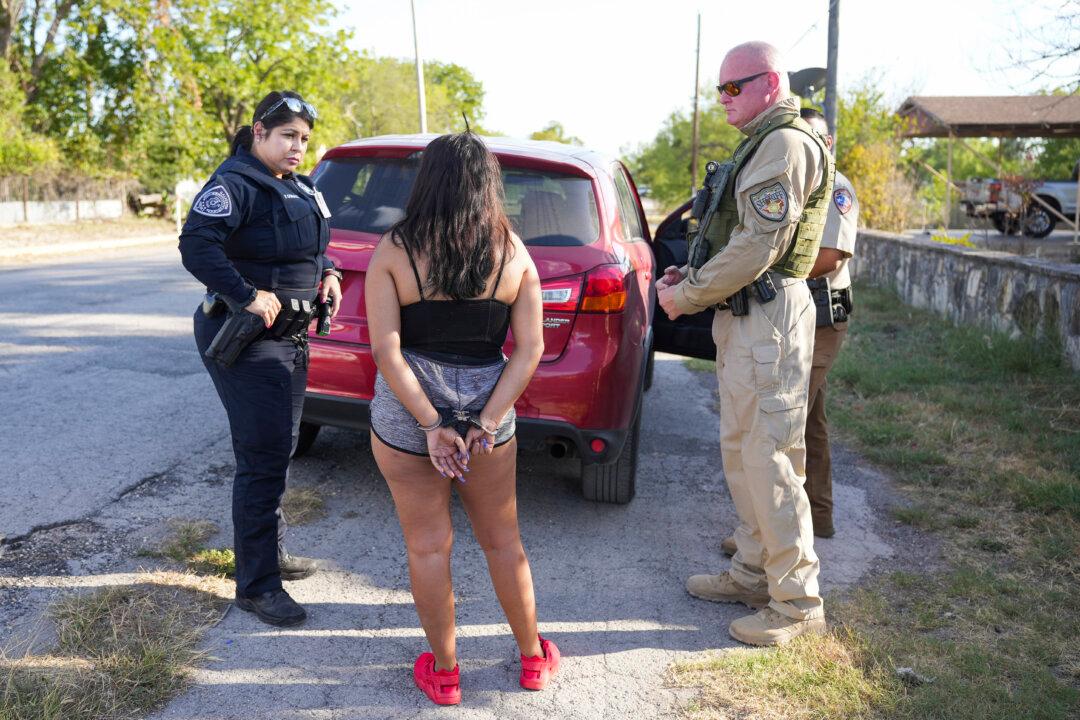KINNEY COUNTY, Texas—The number of human smugglers arrested by deputies in Kinney County, Texas, has more than quadrupled in the past two years, and the sheriff wants the penalties to increase.
Kinney County Sheriff Brad Coe said his deputies arrested 741 smugglers transporting illegal immigrants from the border in 2022, up from 169 in 2020. In addition, deputies were involved in 139 vehicle pursuits, up from 61 in 2020; high-speed pursuits also have doubled, leading to multiple deaths.





